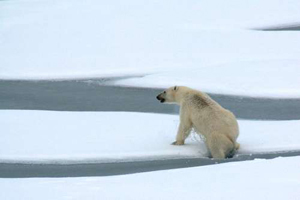Invisible Invasive Species Altering Ecosystems

Elena Litchman, associate professor of ecology, who works at MSU's Kellogg Biological Station. Image credit: Michigan State University
EAST LANSING, Mich. — While Asian carp, gypsy moths and zebra mussels hog invasive-species headlines, many invisible invaders are altering ecosystems and flourishing outside of the limelight.
A study by Elena Litchman, Michigan State University associate professor of ecology, sheds light on why invasive microbial invaders shouldn’t be overlooked or underestimated.
“Invasive microbes have many of the same traits as their larger, ‘macro’ counterparts and have the potential to significantly impact terrestrial and aquatic ecosystems,” said Litchman, whose research appears in the December issue of Ecology Letters. “Global change can exacerbate microbial invasions, so they will likely increase in the future.” (more…)



